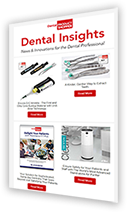
Entering the workforce as a newly minted dentist is an exciting yet daunting prospect. Your first associateship can set the tone for your professional career, influencing everything from your earnings to the skills you can acquire. To ensure you make the most of this critical step, we'll explore the essential aspects of nailing that associateship interview. Whether you're a dental graduate, a new dentist, or an aspiring associate, these insights are invaluable.
Step 1: Understanding the Role
The associateship is more than a stepping stone from graduation to practice ownership—it's a time for growth, learning, and professional development. Understanding the nuances of this role and how it aligns with your career trajectory is fundamental to success. Here's how to approach it:
· Delving into Your Expectations: Before your interview, take the time to define your career goals. What do you hope to achieve in the next five or ten years? How can the associateship support those ambitions? Maybe you're looking to build your clinical skills, work with a certain patient demographic, or learn from a respected mentor. Identifying these expectations will help you screen potential opportunities and ensure a good fit from the start.
· Aligning with Your Potential Employer: In the interview, express your eagerness to contribute to the practice's mission and vision. Ask about the growth opportunities within the practice and how you might fit into long-term goals. Demonstrating this alignment can set you apart as a candidate who is not only skilled but also has the right attitude and commitment to become an invaluable team member.
Step 2: Preparation Tips
A well-prepared candidate inspires confidence, showcasing professionalism and dedication to the role. Here's how to prep for your associateship interview:
· Research the Practice: Familiarize yourself with the practice's history, services, and recent achievements. This information not only helps you tailor your responses but also gives you talking points during the interview. It shows that you are proactive and genuinely interested in the position.
· Brush Up on Interview Etiquette: Know the dos and don'ts of dental interviews. Dress appropriately in professional attire, bring extra copies of your resume and any supporting documents, and arrive early to make a positive first impression. Remember, the interview is not just about your qualifications but also about how well you will represent the practice.
Step 3: Asking the Right Questions
While the employer evaluates your fit for the practice, the interview is also your chance to discern if the associateship aligns with your goals. Be sure to ask questions that shed light on the practice's culture, expectations, and support systems:
· Patient Volume and Categories: Understanding the average patient volume and the types of cases you can expect can prepare you for the workload. Inquiring about this also shows your commitment to delivering quality care while meeting the practice's needs.
· Mentorship: Does the practice offer structured mentorship programs? A supportive mentor can significantly impact your learning curve and readiness to take on greater responsibilities. Candidates who show a willingness to learn and grow within the practice are often preferred.
· Practice Philosophy: Discuss how the practice approaches patient care and business operations. This understanding can ensure your values align with the practice's, reducing the likelihood of conflicts down the line.
· Compensation and Benefits: Be clear on the financial package, and any incentives like signing bonuses, and understand the benefits offered. Financial stability is important, but so is a comprehensive benefits package that supports your overall well-being.
Step 4: Addressing Experience and Skills
Your interview should focus on demonstrating how your experience and skill set will be an asset to the practice. Here's how to do this effectively:
· Relevant Experiences: Highlight any rotations, externships, or previous dental jobs that are relevant to the services the practice provides. Discuss specific cases that showcase your clinical competency and problem-solving abilities.
· Patient Interactions: Employers prize strong communication and interpersonal skills. Use the interview to highlight any experiences that demonstrate your ability to connect with patients and provide a positive dental experience.
Step 5: Negotiating Terms
A successful interview often leads to the negotiation phase. Confidence, courtesy, and clear communication are key to arriving at terms that satisfy both parties. Remember:
· Be Prepared to Bargain: If the initial offer doesn't quite align with your expectations, don't be afraid to negotiate. Research average salaries and benefits in the area to benchmark your requests.
· Understand the Contract: Before signing, ensure you comprehend every aspect of the agreement, from non-compete clauses to the buy-in process if applicable. Seek legal advice if you're unsure about any part of the contract.
The Right Associateship Can be Transformative
Preparing for your first associateship interview involves more than practicing your answers—it means understanding yourself, the role, and the practice. By diligently tackling each of these steps, you will present yourself as a professional who is serious about their career and committed to growing with their future employer.
In the highly competitive dental field, the right associateship at the right time can be transformative. Put your best foot forward, and remember, the interview is just the beginning of a fruitful career. Take advantage of this window into the practice's ethos and operations to ensure you're making a decision that benefits both your professional trajectory and the well-being of your future patients.
Don't shy away from the opportunity to shape your career in alignment with your passion for dentistry. Join leading organizations like Aspen Dental, where you can harness your potential and thrive in an innovative and supportive environment. Apply today and open the door to a world of career possibilities.




